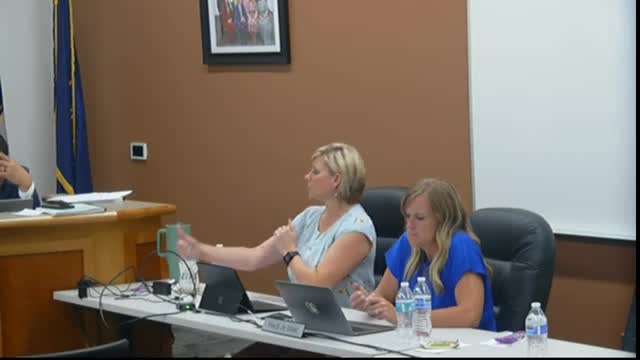Schools Shift Focus from Punishment to Support for Students
June 13, 2024 | Box Elder School District , Utah School Boards, Utah

This article was created by AI summarizing key points discussed. AI makes mistakes, so for full details and context, please refer to the video of the full meeting. Please report any errors so we can fix them. Report an error »

In a recent government meeting, significant discussions centered around behavioral management in schools and the logistics of field trips, highlighting a shift towards proactive support for students and a reevaluation of educational excursions.
Katherine, a key speaker, reported a notable decrease in suspensions at elementary schools, attributing this change to enhanced communication with administrators regarding the implications of punitive measures. The introduction of a behavior specialist has allowed schools to address problematic behaviors more effectively, focusing on support rather than punishment. This proactive approach aims to identify and mitigate issues before they escalate to the point of suspension, with administrators encouraged to engage in discussions about student behavior early on.
The meeting also addressed the logistics of field trips, particularly a proposed trip to Moab for an AP English class. Board members expressed concerns about the appropriateness of the trip's educational value and the criteria for approving such excursions. Discussions emphasized the need for clear standards to prevent setting precedents that could lead to an influx of similar requests. The board agreed to gather more information from the teachers involved to ensure the trip aligns with educational objectives.
Additionally, the transportation department's challenges in accommodating field trips were discussed. Board members highlighted the importance of spreading out field trips throughout the school year to alleviate pressure during peak times, particularly in May when many sports events occur. Strategies to improve transportation logistics, including hiring more drivers and scheduling flexibility, were proposed to ensure that educational field trips can continue without disruption.
The meeting concluded with a motion to enter a closed session for discussions on real property and personnel matters, indicating ongoing administrative considerations beyond the public agenda.
Katherine, a key speaker, reported a notable decrease in suspensions at elementary schools, attributing this change to enhanced communication with administrators regarding the implications of punitive measures. The introduction of a behavior specialist has allowed schools to address problematic behaviors more effectively, focusing on support rather than punishment. This proactive approach aims to identify and mitigate issues before they escalate to the point of suspension, with administrators encouraged to engage in discussions about student behavior early on.
The meeting also addressed the logistics of field trips, particularly a proposed trip to Moab for an AP English class. Board members expressed concerns about the appropriateness of the trip's educational value and the criteria for approving such excursions. Discussions emphasized the need for clear standards to prevent setting precedents that could lead to an influx of similar requests. The board agreed to gather more information from the teachers involved to ensure the trip aligns with educational objectives.
Additionally, the transportation department's challenges in accommodating field trips were discussed. Board members highlighted the importance of spreading out field trips throughout the school year to alleviate pressure during peak times, particularly in May when many sports events occur. Strategies to improve transportation logistics, including hiring more drivers and scheduling flexibility, were proposed to ensure that educational field trips can continue without disruption.
The meeting concluded with a motion to enter a closed session for discussions on real property and personnel matters, indicating ongoing administrative considerations beyond the public agenda.
View full meeting
This article is based on a recent meeting—watch the full video and explore the complete transcript for deeper insights into the discussion.
View full meeting

